What Is the "Soul of Occupy?" [Draft/BETA][Pt.2]
 Friday, April 27, 2012 at 09:31PM
Friday, April 27, 2012 at 09:31PM By Paul McLean
2
MEPHISTOPHOLES: Now we are already again at the end of our wits, where the understanding of you men runs wild. Why didst thou enter into fellowship with us, if thou canst not carry it out? Wilt fly, and art not secure against dizziness? Did we thrust ourselves upon thee. or thou thyself upon us?
FAUST: Gnash not thus thy devouring teeth at me! It fills me with horrible disgust. Mighty, glorious Spirit, who hast vouchsafed to me Thine apparition, who knowest my heart and soul, why fetter me to the felon-comrade, who feeds on mischief and gluts himself with ruin? - FAUST, A Tragedy, by Johann Wolfgang von Goethe
The protesters should beware not only of enemies, but also of false friends who pretend to support them, but are already working hard to dilute the protest. - "Occupy Wall Street: What Is To Be Done... Next?" by Slavoj Žižek
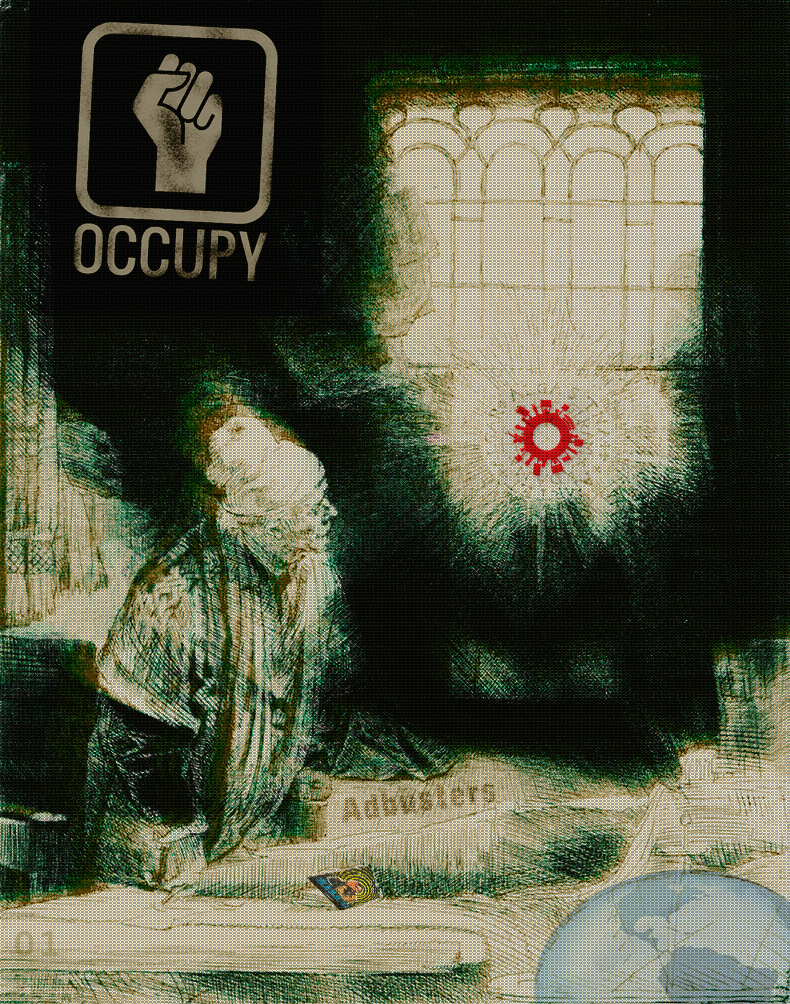
Žižek, "The Elvis of Cultural Theory," has again weighed in on Occupy, now, and Adbusters celebrates, perceiving the text as a ratification of its alarms. May Day protests are fast approaching, and the mustering of forces against Occupy's foes is in full bloom. I'm really looking forward to the Guitarmy, myself. Who knows what will happen? The organizational problem seems to be defining who are the opposition, and the overarching question is who will answer the call for a general strike. The whole set-up smacks of Faust. The flaws in the stances of both Adbusters and Žižek typify the old Left that both the magazine and the colorful thinker fear.
Occupy with Art is all set to launch a full scale Direct Art [DA] assault on all non-profit and for-profit arts entities who received fiscal support from Mayor Bloomberg, Eli Broad and David Rockefeller, plus anyone involved with a hedge fund in any way, who channels fungible blood money derived from those systematically fraudulent and destructive markets into art or culture. We will plague them all, and it will be worse for them than the Biblical ones. HEDGE THIS, MOTHERFUCKERS! will be our rallying cry. It's going to get ugly, but God is on our side (not Blankfein's).
∞
I found Žižek's arguments in the essay (to be given as a lecture at the NY Public Library on April 25, anticipating a new Žižek book release shortly thereafter), and his suggestions for OWS, to be metagrobolizing, but entertaining. He knows jokes, and his delivery is impeccable. Consider this passage:
>>
In a San Francisco echo of the OWS movement on 16 October 2011, a guy addressed the crowd with an invitation to participate in it as if it were a happening in the hippy style of the 1960s:
"They are asking us what is our program. We have no program. We are here to have a good time."
Such statements display one of the great dangers the protesters are facing: the danger that they will fall in love with themselves, with the nice time they are having in the "occupied" places. Carnivals come cheap – the true test of their worth is what remains the day after, how our normal daily life will be changed. The protesters should fall in love with hard and patient work – they are the beginning, not the end. Their basic message is: the taboo is broken, we do not live in the best possible world; we are allowed, obliged even, to think about alternatives.
In a kind of Hegelian triad, the western left has come full circle: after abandoning the so-called "class struggle essentialism" for the plurality of anti-racist, feminist etc struggles, "capitalism" is now clearly re-emerging as the name of the problem.
The first two things one should prohibit are therefore the critique of corruption and the critique of financial capitalism. First, let us not blame people and their attitudes: the problem is not corruption or greed, the problem is the system that pushes you to be corrupt. The solution is neither Main Street nor Wall Street, but to change the system where Main Street cannot function without Wall Street. Public figures from the pope downward bombard us with injunctions to fight the culture of excessive greed and consummation – this disgusting spectacle of cheap moralization is an ideological operation, if there ever was one: the compulsion (to expand) inscribed into the system itself is translated into personal sin, into a private psychological propensity, or, as one of the theologians close to the pope put it:
"The present crisis is not crisis of capitalism but the crisis of morality."
Let us recall the famous joke from Ernst Lubitch's Ninotchka: the hero visits a cafeteria and orders coffee without cream; the waiter replies:
"Sorry, but we have run out of cream, we only have milk. Can I bring you coffee without milk?"
<<
Later, Žižek, always correct formally, in acknowledging his influences, quotes Lacan, the same nutty Lacan who posited that the squishy tight confines of the womb are as good as it gets for us twisted folk, and we're always trying to re-occupy that territory, contrary to what the Tibetans long before asserted - that we all can't wait to get out of the uterus, and we mustn't no matter what give in to the urge to go back. "Do not enter any sort of womb which may be come by," is what the Book of the Dead instructs. Why do that again, O nobly-born, when you can jet to Nirvana, and fun times forever! ONWARDS!
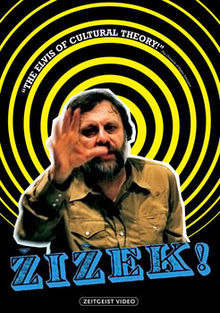
Having just partnered a pregnancy and birth, I go with the Eastern view. What do you think all that kicking and heartburn's about? Lacanian regression aside - I actually think Žižek's Lacan citation about switching one master for another post-revolution is apt - there's always much of the tragic farce to appreciate in a Žižek text. He seems to have a gypsy's eye for doomed trajectories and trap doors. In "Occupy Wall Street: What Is To Be Done... Next?" Žižek displays his usual brilliance in his coupled analysis of plutocratic globalism's effect on national democracies. Too bad he doesn't name names. Like Buffett. Or Greenspan. Or places, like gulags, or Davos. Or things, Rembrandt paintings and the Met.
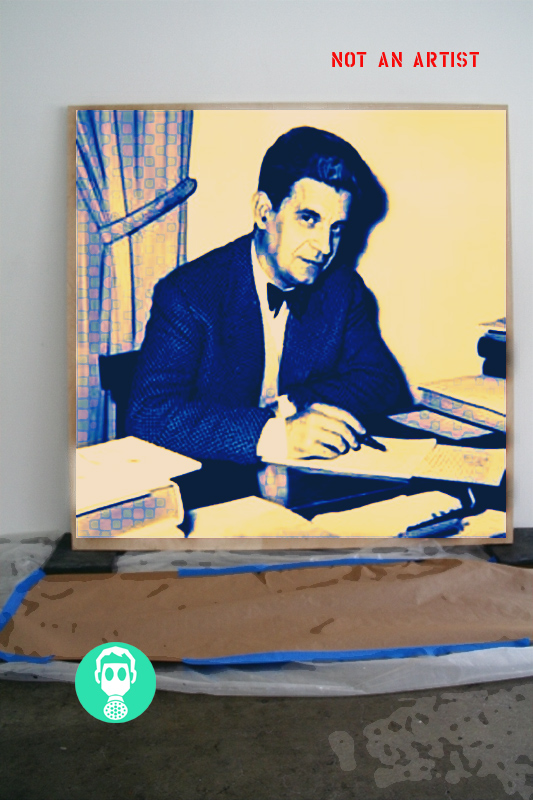 LACAN
LACAN
I love that Žižek references Wall Street and Main Street. Maybe he visited Occupy with Art's program in Catskill, New York? Because then he might have made a joke about Rip van Winkle, which would be great for an American audience. He would have to know more about our literary myths to do a quip along those lines. ...Or, shoot. Žižek might have really gone native or artsy, or political and economic on us, made pithy observations about Thomas Cole and Frederick Church, or Paine and Taylor, which, although not as linear an association, still might make for some fun and meaningful dot-connecting, with say, Muybridge and Eakins, and Revolutionary motion, and Time and objects and subjects. Wake up, and let'r Rip! We might even make it to Neo, and the Matrix, and Baudrillard that way. He could have taken us by the hand and walked us into a new dimension, but instead we veered to the old Left. His jokes are about Eastern Europe and other academy stuff anyway. Right?
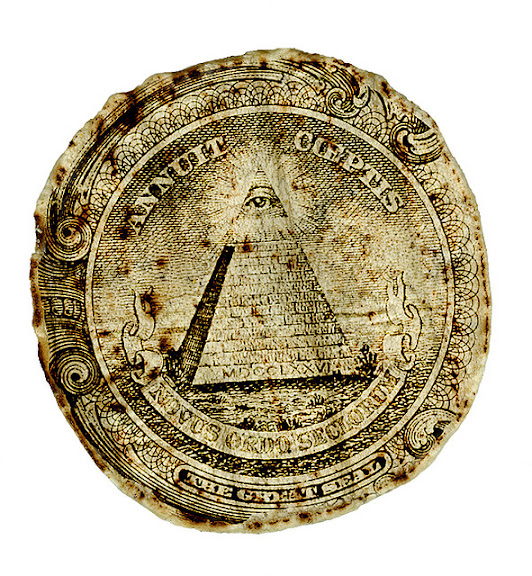 Wall Street to Main Street: The Great Tortilla Conspiracy, event at BRIK Gallery April 28, from 1-5 PM with printmaker Jos Sances
Wall Street to Main Street: The Great Tortilla Conspiracy, event at BRIK Gallery April 28, from 1-5 PM with printmaker Jos Sances
But is Žižek serious about what he thinks is vital for an eruptive OWS movement to consolidate its gains: "hard and patient work?" His thinking about alternatives to the system corrupted beyond critique by Capitalism gone wild makes sense. Capitalism is doing what it always has done, which is to make waste while getting a few bastards rich and enslaving the rest to them in the process, and to the process at the same time, which is close to addiction in its symptoms. Capitalism is just doing it even more productively than before, corrupting everything it touches in the sphere of human exchange and society, and on a global scale. ...And critique is not accountability, which in a democracy, depending on where you come from to get to one, is progress. Is that Hegel?
 Hegel
Hegel
∞
Žižek doesn't mention art in his essay, which isn't surprising. As a thinker, Žižek is quirky when discussing art, beyond the genre of cinema - at which point he's queer. "Cinema," according to Žižek, "is the ultimate pervert art. It doesn't give you what you desire - it tells you how to desire." Well, how about Schopenhauer? “To desire immortality is to desire the eternal perpetuation of a great mistake.” Talk about what next, Occupy! Carpe diem! Have fun! May is the time for Jubilee!
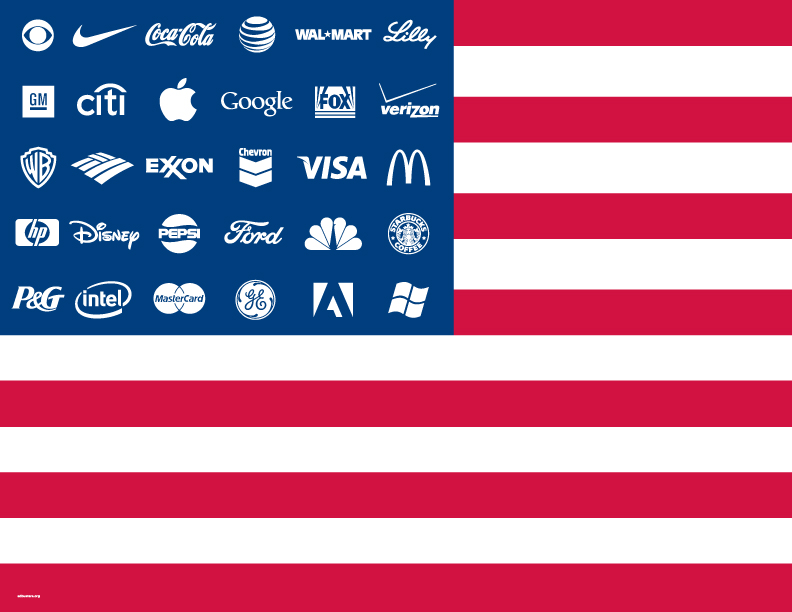 Adbusters/USA Inc. flag
Adbusters/USA Inc. flag
Anyone familiar with Žižek's wild and frenetic style of transmission should know also that it's nearly impossible to confine his thinking on any subject to a strict recursion from the particular to the general. Why should art be different in Žižek's schema? Art for Žižek is actually a fungible term, applicable to almost anything. The fact that Žižek's de-definition of art is as close to the pop-universal one - dare we say Catholic (in the etymological sense) - explains slightly his broad appeal, which extends beyond the academy, resonating with many for whom philosophy or post-Freudian psychology (or art, as in the "plastic" type) is not the least bit interesting anymore, beyond Thomas Kinkade (recently deceased) or Bob Ross (not so recently...); either of those guys would make for good Žižek jokes, come to think of it.
Art for Žižek ostensibly encompasses laziness, surfing, and a host of other nouns or activities that merge into the Pop consciousness, economy, culture, memory and the effervescent mundane consumption of Western civilization, as it is. The Subjective/Relative. As for image, where the subjective and relative for the artist encounter choice, Žižek doesn't mind being a star in the movie, either, as the documentary on him demonstrated. Chalk it up to an experiment in multiple selving, but don't be fooled. The scheme of Žižek's thinking is, according to my friends at the European Graduate School who know him well, akin to a steel-jawed bear trap. If he at times seems flippant, it is but a seeming, a fine guise belying genius and rigor.
Where Žižek and Adbusters hook up is in naming our shared problem, which is "capitalism." But OWS isn't Occupy Capitalism. I'm surprised, given Occupy's clenched fist ana-logo, that Žižek didn't revisit his profound ideas on fisting.
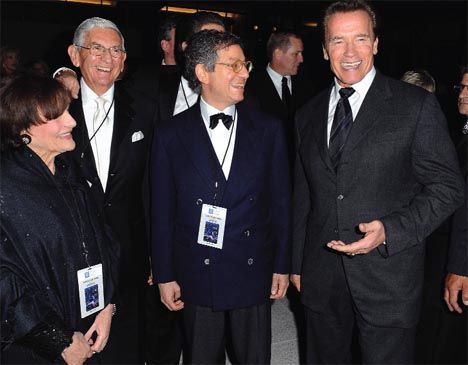 Deitch, Broads, Schwarzenegger
Deitch, Broads, Schwarzenegger
I have several problems with Žižek's assumptions and propositions for OWS. First is the idea that naming the problem is useful. The second is the prohibition against protesters having a good time. The third is where/when Žižek and Adbusters also apparently converge - on May Day. (That's enough, because actually this essay is not about either Žižek or Adbusters.)
None of these three problems I have with the proposed limiting functions, and that is what they are, translates in determinate fashion to the domain of art, which is mainly my concern, dimensionally speaking. These advisories address art indeterminately, or environmentally, as cultural mandates, from an authorial origin that is false. That neither Žižek nor Adbusters actually seems to care much about or for art, even though both embed their ideological formulations deep in the culture and institutions that art has traditionally occupied, seems to not bother either of them a bit, when we get to their platformed opinions, which are in fact commands framed as concerns. Call it old Left privilege, art being the only industry I know of that promotes those who hate art and wish to diminish its value by any possible means to its highest orders. As an artist used to losing jobs to art-hating scabs from other disciplines, quite a few of which despise art - not too strong a verb - I say Fuck You to such out-of-Left-field mandates for art and artists. I always get the impression that the Marxians and their derivative activist clans don't mind commanding art to voluntary service to the cause of solidarity, but rarely reflect on what art, the best art, requires of them. But let's leave labor issues out of this for the moment.

I've long felt that the underpinning relations linking cultural thinkers and globalist critics like Žižek and Adbusters respectively, to art, and also to OWS, for that matter, are in very important aspects parasitic, and not symbiotic, which is not to imply that I question whether either Žižek or Adbusters sincerely wish the best for Occupy, or hate art and artists, per se. I don't. What do I know about what they love or hate, anyway, really? I can only go by what I read, and what I've heard (in Žižek's case). I just don't think they have any incentive- political, cultural or economic - to switch out of the position that afforded them their notoriety, at least to a degree, with respect to art, which as far as I can tell they don't respect at all, on its own terms. The same is true for some others I name, or call out, below. It's all red foxes and hen houses, the art world, coupled (as in fisting) with a totally unregulated 1% secondary commodities market that's outperformed the stock market on ROI for the past half-century. Which has nothing to do, really, with art. Labor for that matter, and Churches, do attach, when one replaces a Master with a 20th century Revolutionary master, who advises you to work hard and patiently. At least the former knew what fun was.
∞
What passes for fun in the art world depends on to whom one's speaking. Fun in South Beach or Venice is different than fun in Bushwick, for instance. The people getting paid nowadays have fun on their minds. The neo-orthodoxies, they're adamant about purity. It's variable, but possibly the same as usual. It's a management thing. Hyperallergic recently posted some excellent work on the subject by William Powhida, and some neat interventions/research by WAGE. ...I've discussed my sentiments and supporting analysis elsewhere (see "There's No Art in Hell" or "Art Star") and will leave that aside for now, like womb-regression.
∞
On to the response: Naming a person, place or thing compresses what's named into the language of thought, which is why, I would argue, artists developed the anti-thinker measure of leaving art untitled, in the modern era, where critics are situated as mediators of culture in general, and art in particular, but only as a kind of sideshow entertainment. Everyone knows the 1% have no use for critics, except as singing monkeys at the garden parties.
Naming is a tactic for de-objectifying art, for re-situating it in the medium of thought. Art is more than thinking, being of techne as much as episteme. The critic-created -ism or school is a symptom of this de-defining process, and Harold Rosenberg in his seminal text The De-Definition of Art provided us a great start-point for questioning the practice of making art fungible, to the benefit of the t(h)inkers. The point at which the artist becomes complicit in this processing of their output is in the nomination of their art for the viewer, and the professional viewer or art historian, which now and since art divorced the Church includes the critic. That the critique has become the overarching medium for art and its production since the 60s or 70s, depending on whom one asks, Asher included, the means of art instruction (or indoctrination of the artist) and the means by which art's value is estimated does nothing good for art, itself, necessarily. The prime beneficiary of the critique is the critic, who re-prioritizes the experience of art in terms of art's de-construction, contingencies, relativity and so on. Žižek is a beneficiary of the critical status quo, which is itself institutionalized. My first encounter with Žižek was in the pages of Artforum. BRAVO's abortion "Work of Art" perhaps is the prime example of the corruption of art created by criticism, as a first-order destruction of art on its own terms. Whatever naming does or doesn't do, it surely translate the real into the realm of the immaterial. It's worth considering how God of the Bible gave Adam (man) power over the rest of Creation: through the procedures of naming; whether the subject is "art" or "capital," naming makes the conflation of the two possible in the immaterial, the operating system of the thinkers, like Žižek (and evidently, those anonymous radicals at Adbusters HQ, as well as the leaderless leaders of Occupy).
POEISIS
I'm speaking of Capital. & Communism. What's in the name? Maybe we should call Capital "art" and Communism "creativity" and think of them in tandem as "culture." The Communards keep appearing, followed by the Situationists and Duchamp, etc. Klein, Beuys, Warhol. The Black Cat. The Wobblies. Frick almost assassinated by a guy with a shitty gun, and the museum of the same name is protested. This is the poetics of May actions, with a Call2Create (dot) org. Everyone's an artist, and everything an artist does is art, and to buy or not to buy. Is the name of this automatic stream of consciousness Occupy?
∞
Žižek's cautioning Occupiers to orient their energies to hard work and patience is problematic on numerous levels. First of all, if I can be permitted to conflate Žižek and Adbusters here, coming from global corporation-busting anarchists and a poly-hybrid Marxist/Lacanian thinker-genius, the suggestion seems hypocritical at best, especially since Occupy is a volunteer ana-organization. If nothing else, volunteers should be paid periodically in fun. Every volunteer organizer anywhere gets this. Except where volunteering is actually mandatory.
Let me clarify my direction structurally before I get into this further. In my conflation of Žižek and Adbusters, add distinction and designate Žižek "the source" and Adbusters "the amplifier" (OWS is the resource and amplified). In this instance, I would caution the reader that "source" and "resource" can flip-flop in our imaginary network, which is itself a flaw. Source is just a currency. Resource is content, or material. Amplification occurs in a medium, as a field effect. The echo and reverb are modulated in the network, by users and admins, or managers. Because anonymity and IDs are voluntary, and unenforceable, they cannot be verified, as correlative with any real-world person. It's all open source anyway, except where otherwise noted. We don't employ an ombudsman or monitor. The screening process is internal and the projection imaginary. No enlightenment needed - plug'n'play, to the max.
Now, let's have some more fun talk.
Considering the amplifier: Adbusters is devoted to culture jamming. As one who's followed the progression of the magazine from its first issues, I find it possible to assume that the fluctuating identity of the anti-global-capitalist, as its rendered through the pages of that monthly Canadian glossy, arises not from any representational editorial mandate, but from a response to readership demographics. Adbusters' design, crypto-message and style are cool as coffee table eye- and mind- candy, culture-fodder, yes, and for what types of reader? Adbusters is a trade magazine for all types of social discontents, from the Black Bloc to the Rainbow Gathering. OWS was all that and a People's Library, too, with drum circles, good free food, lots of dope and more. It was a common enough meme in and around Liberty Square during the occupation, that "This is the best party I've ever been to." The photos and videos documenting the environment at Zuccotti don't lie. Furthermore, the value of "fun" to the movement must not be underestimated, because as I and others noted, the subversion of the Command and Control/Extraction and Exploitation complexes produced by the rejection of the "Protestant Work Ethic" is a thread that binds Occupy with hundreds of previous iterations of "The Many-Headed Hydra," [see Rediker's book of the same name] the rebellions against the forces of colonialism and enslavement to God and King. So, OWS is a fun-loving "savage" movement, at one level. Even on an organizational scale at OWS, the routinely maddening and stupid GA structures for meetings required intrinsic and extrinsic fun infusions, if only to diffuse the tension that would mount during endless unproductive exercises in "consensus-making," which as a practical matter amounts to expedience due to exhaustion, in my own and others' experience. Considering the source: Žižek is quick to acknowledge the systematic failures of Eastern Bloc communism, one of which was the un-fun, Kafka-esque political procedure amid persistent material lack that dominated daily life and made it torturous for the communists. It seems odd that he would argue for it for Occupy, as a standard behind which to mobilize the masses. To be fair, I think, it may be that he is referring to grassroots activism, which inevitably involves the slog. ...But this is the purview of democracy, not anarchy, not statist communism, and certainly not wild and crazy, window-breaking and 'puter hacking neo-anarchism.
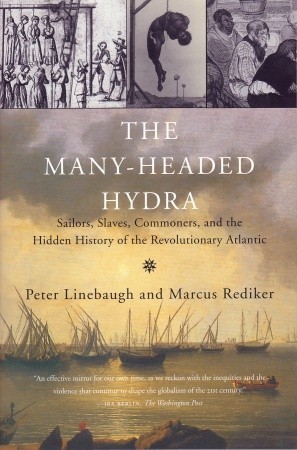
If Žižek were actually referring to art production, which he's not, he would be correct, too, about the need for hard work and patience. It's called craftsmanship, and generally poo-pooed by lovers of non-authorial modes of creative expression, in by and for the collective. Actually, they also don't dig geniuses, which doesn't for whatever reason seems to apply to Žižek. Maybe he's an anomaly... The wisdom of the unromantic task for change, its mission and struggle - maybe this is what Žižek is gently referencing, but Žižek's jaundice toward real art does not permit him to make the leap.
Still, coming from pranksters like Žižek and Adbusters, anything that descries the Carnival prima facie is suspect. Too bad. Calder comes to mind, and the kinetic 3D, which is exactly what Occupy needs right now. Occupy Circus, by the way, is ready to go on tour.
On the third point, I'm shouting mayday over more than what I consider the bad timing + consciousness of a 1 May blowout DA (direct action). My big beef? It's not what you might think, given my comments about the Reds. I'm against this time-release Occupation thing, the calendar-date specificity thing, appointing a dot on the timeline as the point at which actions are simultaneously to erupt. So old Left, man. The decision, whoever it belongs to, to bring Occupy together again on May 1, was idiotic, strategically speaking. Worse, the May Day general strike gambit for OWS is all wrong, at least for USA-based occupations. I won't begin yet to attack the contingencies that make that choice of dates a recipe for failure, here. The old Left got to be the Decider on this one, and they are hanging Occupy out to dry. The whole thing reeks. Even though many well-meaning and loyal Occupiers of Arts & Culture will do their best to adorn this pig with lipstick, OWS is going to be porked. Count my vote as a Block... I communicated my views through the proper channels, and aside from a reply from one conscientious individual, my concerns got nuttin'. So much for consensus. I plan to fold this episode into a broader narrative about the near-total lack of reciprocity between Occupy with Art and the NYCGA, and other A&C WGs, in due course. Readers unfamiliar with the constantly shifting org-tree of OWS/NYCGA are snoring, by now. Who cares!
Switching: From the organizational to the metaphysical perspective; ...The last thing Occupy should be doing, as a force, is making a date with destiny, especially one like May 1, 2012. REALLY? Of all the dates on the calendar available. ...Even after the G8 summit was moved from Chicago to Camp David? Who thought this up?! Was the (probably-sounded-great-at-the-time) concept supporting this DA inspired by Madagascar social practice attuned to debt-dissolution on anamoral grounds, or was it derived from some arcane immigrant an-Apocalypse prophecy coded in an ASCII-rendered OS to conform to Continental Theory as nonphilosophic linguistic phraseology by chaotically non-arranging signs mirrored by bundle on a hard drive somewhere in the Cloud? Are y'all high? I mean, whatever people may think in Spain, this is an indecipherable management fuckup here in the States. FUBAR. Whatever comes out of the May Day action, it will be a lost opportunity, a mistake derivative of the old Left. Occupy, just as it refused to abandon Demand/Command, could have chosen to abandon artificial time-based action. OWS could have decided, or not-decided to submit to history and its control. That would have said more than any essay or six-part blog-proclamation. OWS could have insisted on remaining TIMELESS artificially, while existing as an event unfurling in real time, or rather as True-Time (4D; Heidegger, On Being and Time) consciousness, as a matter of choice and therefore identity... That would have been the self-aware thing to do. ...Not to be critical.
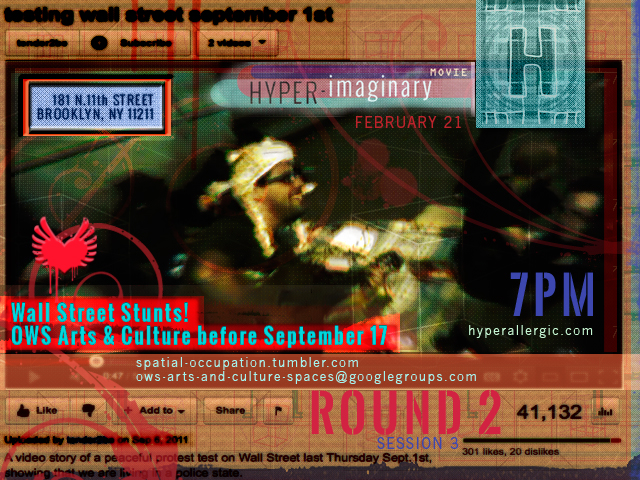
∞
... Which brings me back to the subject of games. During the Spatial Occupation at Hyperallergic, we dedicated several Tuesday evenings to retracing the pre-9-17 actions of OWS Arts & Culture, gathering as many of the original participants to join us as we could, through the various network means available to us. As a team, we assembled a set of documents, videos and other artifacts, to form a rough timeline and outline of the A&C-related events prior to the occupation of Zuccotti Park. After reviewing these, with a representative group of original participants, then reflecting on how Occupy evolved post-9-17, and discussing current activities unfolding in what we might describe as Occupy [real or game] Time, a combinative schematic indicating chronologies and additional modes enabled by archives and reproduction, some new possibilities emerged for praxis that could model the formulation of an occupation for wannabee-occupiers, rationalize the progressions we focused on, commemorate those involved, analyze the nature of the flux of participant comings and goings, and so on. The formats were decided upon. After we open-sourced our efforts to that point, the first project we'd pursue would be a revolutionary game, which is now in development. A second project would be a movie, which is also in production, now. Ripple effects, dimensional echoes, playing out in the circles and nodes linked to the individual participants and groups attached to our convergence began immediately to manifest. Secondary sets of projects and variants emerged, as is normal. For me the event, as a session sequence, was inspirational, renewing and invigorating. It was like keying into the magic at the heart of OWS. In a word, it was beautiful. The people I have encountered through the Pre-Occupy program are in my view the Real Thing, the Fuse, and if an adjective could describe them it would be "unexpected."
I would suggest that the value created by the gathering, which took place over several actual sessions and virtually, was the incubation and/or facilitating a step in this core group's development of progressive self-awareness. In what ways I can, I am encouraging their collective and individual enterprises, and doing what can be done to embed their story into the overarching narratives of Occupy, which have to a great degree been those promoted by writers and thinkers and the other media-enabled professionals (and of course the anti-Occupy army corpse of media engineers, propagandists and spinners). As far as I can tell, the big names have no knowledge of the phenomena like Magic Mountain, maybe some passing experiences with or knowledge of actions and collectives like RevGames. Certainly, essays like Žižek's reveal no awareness of them. Adbusters' interests seem entirely divergent from them and theirs, although this is perhaps too hyperbolic to say. The problem in one phase of the aggregation of for-Occupy narratives is aligning motivations with behavior that effects sustainable change catalyzed by OWS. This is the domain of narrative as tactical utility. In the medium of so-called diversity of tactics, I would argue that OWS has settled on an "all is forgiven" party line, or at least "all is understandable," which is a short hop to "the ends justify the means," the settlement that suspends judgment, judgment of the sort Hannah Arendt promoted. The ends-justify-all-means management maxim is what all reasonable souls are most worried about the movement accepting as modus operandi. True art never accepts that one. Even when it does, it doesn't, because of art's relationship to Time, the only Object. Art is object; Time is Object. Objectives are incidental, except when they're not. This is the Time-relative double negation that's inherent in art, almost alien to modern philosophy, and exactly the reason Badiou told me last summer that "Philosophy needs art, today." Occupy needs art today, even more than philosophy does, and not some fungible, dispersed, utilitarian or ironic simulation of art. Occupy needs art, not just for what art does or doesn't do, but for what it will not abide, by its commingled individual/collective exchange nature, which is a mix or mash-up or dimensional form that is force/object/nature/Time/human + (soul), or spirit/mind, as in Hegel's phenomenology. Sorry if this seems as muddled as a matrix in a complex hiding a situation, framed as an event-thing. Translation is a bitch, and we don't have four-dimension language yet. The nearest approximation is English, which is FU'KED, as such. To the 1D/point: means-justify-ends = line'm up 'n' gun'm down; art = Goya's representation of such, which tells us all we need to know about that, Forrest.
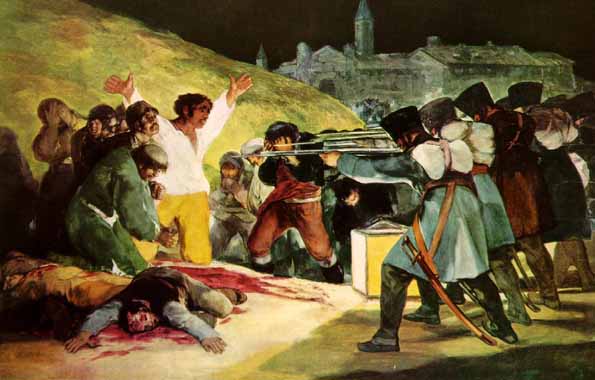 Goya, 3 May
Goya, 3 May
Occupy art, to track back to Žižek's definitions, is better than any movie, and undoubtedly better than any movie about Occupy. Every free-minded cool kid in America and much of the world gets this, and that's why they showed up by the thousands at Liberty Square during the occupation, and why they tuned in on the webstreams by the tens of thousands, then the hundreds of thousands. It's also why those who stand to lose the most, if OWS achieves itself fully, will do everything within their means to suppress this truth, and why the main players have to conduct their activities in the shadows, always looking over their shoulders for the cops. ...And all they actually are trying to do is make art, be good citizens and have fucking fun, free. Money's got nothing the fuck to do with it, and neither does ownership, as in property, which terrifies the 1% more than anything, because in the end, that's all they got. They got NO soul, and they can't buy freedom, and they can't own soul.
Nicolas Chalupa: image d'untitled zero - film animation
I like to reference The Handbook on the Economics of Arts and Culture from time to time:
>>
One area of considerable interest in the economics of artists' behavior is the matter of motivation, interpreted in the context of a stage creative process as the stimulus towards taking the first step. Artists may be motivated by a variety of influences and desires, ranging from the pursuit of a grand artistic vision to more mundane concerns for pecuniary gain. Frey (1997; 2003, pp. 141-144) has distinguished between motivations arising from within the artist's being and those imposing themselves on the artist from outside; he identifies these as 'intrinsic' and 'extrinsic' motivations respectively. These motivations might be transformed into a desire on the part of the artist to create value, realized in either an economic or a cultural payoff [Throsby (2001, Chapter 6)]. Thus for the intrinsically motivated artist seeking purely artist reward, a link between creativity and cultural value is established; for the commercially minded artist the extrinsic value, entrepreneurial flair, etc. are likely to be implicated in the generation of economic value.
<<
- Creativity and the Behavior of Artists; 5. Modeling the creative process in the arts by W.D.A. Bryant and D. Throsby
Nobody mentioned good times in that excerpt! This kind of MGT arts economy analysis, rooted in dualistic frameworks (money hunger, versus ambition for artistic greatness, in the domains of cultural notoriety, as the binary motivators for artists in their work), is at the bottom of superficial de-definitions of art and artists by many with sticks in the game, either as art market proponents or cultural critics. It precipitates the conflation of Capital and Art, pure and simple. How does the framing of art in such a restrictive manner color the art of Occupy, or the general perception of it, and re-disposition its place in the movement, and therefore to those outside the movement? Significantly, I would argue. For instance, from my review of David Graeber's texts and via direct questions posed to him, I would say his limited understanding of art is informed by just this sort of artificial framework for art in contemporary society, and pre-supposes the role art must play in the formation of protest against Capitalism. It also allows for art to be de-defined into a "scam," an "experiment" in valuation, etc., which is how Graeber views contemporary art, which is apparently de-linked from ancient iterations of art (as in Lascaux) and therefore must be re-situated, by neo-protestant anarchists, supposedly, to be somehow more or better integrated into everyday life. Movements that oppose Capital have throughout the post-Marx era gone to great lengths to promote art that is not integrative for the 99% or their real lives, and to promote "art" which is indistinguishable from consumer portable art of the sort Capitalists promulgate exclusively through monopolistic syndicates that control and monetize ideas, production, presentation, distribution and evaluation networks. In the current 1% status quo, anti-art is 1% art, and pop celebrity is the grist of anti-1% thinkers. Then, for the Other guys, the neo-anarchists, there's art as puppets, chalk drawings on sidewalks, street performance and so on, in the service of protest. FUN!
I would extend the conflation/reduction/submission complex, involving campaigns to situate art in the hobbled projection formulated above as MGT theory or fun-neo-protestant simulation, and represented across a spectrum of Occupiers' arts and culture groups, including groups like Occupy Museums and Arts & Labor, which insist on focusing on issues of art industrial injustice, corruption of institutional systems from the top-down, and the ideological premise that the collective should be prioritized over the individual, or that freedom as such should be dispersed in acceptable anti-colonialist/neo-colonialist formulations that serve the agendas of the various post-War-(Euro)Revolutionary movements. Parsing the overflow of Hegelian bad consciousness plaguing the architecture enveloping art and Occupy (and soul) is too involved to do anything but make a humble reference here.
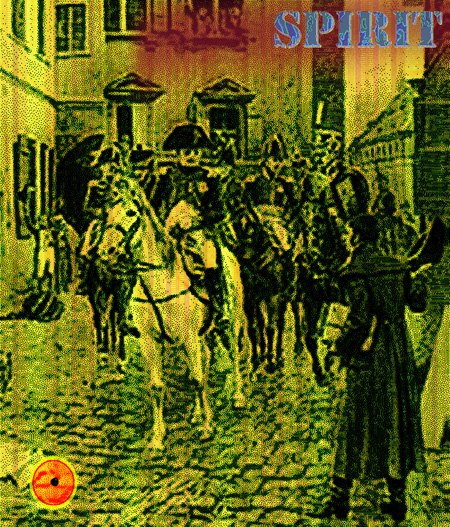 Hegel encounters SPIRIT on the side of Napoleon's horse
Hegel encounters SPIRIT on the side of Napoleon's horse
What's clear is that none of the solutions being offered do much to address the real seven trillion pound gorilla in the room, which is the $700 Trillion derivatives market, which is destroying civilization as we know it. The entire apparatus of top-down .0001%er influence is brought to bear in every direction to ensure that this critical issue, the one destroying nations, art, education, society and real economies, remains immune to all opposition. If OWS ever needed a singleness of purpose, it's now, and the purpose should be to destroy the $700 Trillion derivatives market, and make accountable all who have been complicit in its singularly destructive operations, by order of importance. [See NOTE below]
To draw a close to this section, I would also take issue with Žižek's re-direct from "morality," as a linchpin for general recovery. I will do so by putting forth a statement, which I will explain in more detail later, with examples. Occupy Wall Street owes more to 12-step programs than it does to any anarchist-generated anthropological experiment (or careerist scam). "Singleness of purpose" as a phrase has specific resonance for 12-steppers, who recognize it as the key to survival, for both the afflicted individual and the group assembled to help her. Correlations between the movements (OWS/12-step) are not difficult to see. Just look for a moment at the "I Am the 99%" Tumblr. Is this not a variation on the confessional practice central to Anonymous programs, which has enabled the disenfranchised and marginalized, the Doomed, to find a voice, as an essential component to their re-entry into their communities as useful and contributing individuals? I would suggest that many, if not most of, the "average Americans" who found resonance with OWS did so through a number of apps that evolved out of AA and other such programs, which re-surfaced in Occupy as variants. The outraged, like those who got off the couch after watching YouTube videos of young people being brutalized, were temporary gains for Occupy's numbers, and also were counterbalanced by sickos who simply got off gratuitously watching the exact same videos while remaining on their couches, cheering the cops. Digging a bit further, I would also suggest that anarchists should be the first to embrace the 12-step/OWS connection, since AA (the most well-known of the 12-step organizations) as a society has proven to be the most effective, constructive and sustainable neo-anarchist movement in history. For clarification, see the Chapter on Step One in Alcoholics Anonymous' (non-profit) text known as "the 12 & 12." Again, I hope to delve in depth on this subject later.
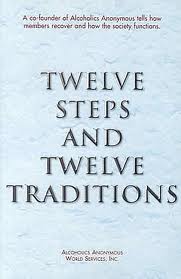
∞
I believe Occupy has yet to discover its own soul, and if and when it does, it will be the most powerful force for good on earth. That's why I've been willing to be part of OWS. It is possible for Occupy to be anarchic, democratic, self-supporting and spiritual, and the incubator of a million manifestations of cultural benefits and goods, including art, as soon as it embraces its own, self-defineable, individual and collective spiritual freedoms, practices and traditions, and becomes willing to share them as open source, without equivocation. To do so, it will have to jump, jump, jump over the dead body of the old Left and choose its own motivation. Will OWS finally get spiritual? If it does, Occupy will generate great art abounding. Otherwise, all we'll have are big ideas, like every drunk on a barstool.
[NOTE: If it's in the NY Times, it must be real. As this article indicates, the complicity between top US officials and prime beneficiaries of the monstrous hedge fund syndicates is extreme, and indicates a near-total corruption of democratic processes, permitting the fraudulent wealth-redistribution by the worst actors among the 1%ers to continue unabated, with ruinous results for almost everyone: Regulators to Ease a Rule on Derivatives Dealers http://dealbook.nytimes.com/2012/04/17/regulators-to-ease-a-rule-on-derivatives-dealers/?ref=business ]
[NOTE 2: Footnotes at the end of the final segment]
 admin |
admin |  Post a Comment |
Post a Comment |  adbusters,
adbusters,  art and occupy,
art and occupy,  soul of occupy,
soul of occupy,  zizek in
zizek in  texts
texts
Reader Comments